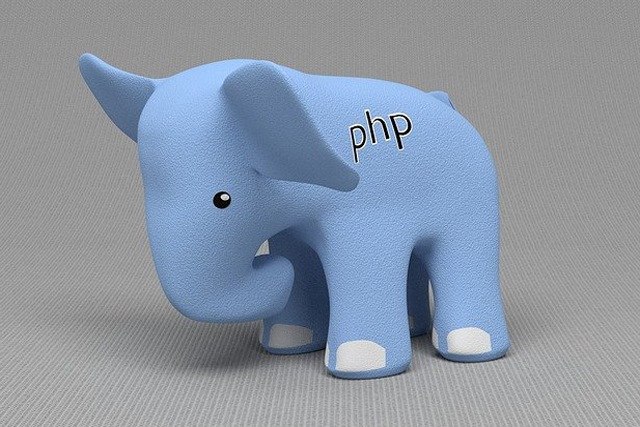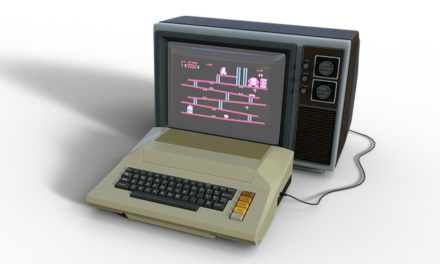In the ever-evolving landscape of web development, few technologies have had as enduring an impact as PHP. Over the years, PHP (Hypertext Preprocessor) has evolved from a humble scripting language into a powerful server-side language that powers a significant portion of the internet. In this article, we’ll take a stroll down memory lane and explore the history of PHP, tracing its journey through various versions.
PHP: The Early Days
PHP was created by Rasmus Lerdorf in 1994 as a simple set of Common Gateway Interface (CGI) binaries written in C. Initially, it was developed to manage Lerdorf’s personal website’s visitor statistics. It stood for “Personal Home Page,” reflecting its original purpose. However, as its capabilities expanded, it was renamed “PHP: Hypertext Preprocessor,” a recursive acronym emphasizing its role as a server-side scripting language.
PHP 3: The Birth of a Web Development Powerhouse
PHP 3, released in 1998, marked a turning point in the history of PHP. It introduced a powerful new architecture that allowed developers to build web applications with greater ease. Key features of PHP 3 included:
- Support for databases: PHP 3 added support for a wide range of databases, making it a valuable tool for developing dynamic web applications.
- Improved performance: The new PHP parser improved performance significantly, making it a more competitive option for web development.
- Object-oriented programming: PHP 3 introduced rudimentary support for object-oriented programming, a precursor to more robust OOP features in later versions.
PHP 4: The Era of Maturity
PHP 4, released in 2000, brought a host of improvements and features, solidifying PHP’s status as a serious web development language:
- Zend Engine: PHP 4 introduced the Zend Engine, a major performance boost that made PHP even faster and more efficient.
- Improved OOP support: PHP 4 enhanced its object-oriented programming capabilities, introducing classes and better encapsulation.
- Output buffering: Output buffering allowed developers to manipulate content before sending it to the browser, opening the door to more dynamic web applications.
PHP 5: A Leap Forward in Modernization
PHP 5, released in 2004, was a major milestone in PHP’s history. It brought several significant changes:
- Zend Engine 2.0: An updated Zend Engine further improved performance and allowed for more advanced features.
- Robust OOP: PHP 5 introduced full support for modern object-oriented programming, including features like interfaces, abstract classes, and exceptions.
- SimpleXML: This extension simplified parsing and manipulating XML data, a crucial capability in an increasingly interconnected web.
PHP 6: The Version That Never Was
PHP 6 was anticipated as the next major release, promising native support for Unicode and improved internationalization. However, development on PHP 6 faced numerous challenges and was eventually abandoned. The features intended for PHP 6 were integrated into PHP 5.3 and 5.4, and PHP 6 as a standalone version never materialized.
PHP 7: A Quantum Leap in Performance
PHP 7, released in 2015, brought about a revolution in PHP’s performance and capabilities:
- Zend Engine 3.0: PHP 7 featured a significantly improved Zend Engine, resulting in a remarkable performance boost. PHP 7 was approximately twice as fast as PHP 5.6, making it a compelling choice for high-performance web applications.
- Scalar type declarations: Developers could now specify the types of function arguments and return values, enhancing code reliability.
- Return type declarations: PHP 7 introduced the ability to declare the return type of a function, aiding in code clarity and robustness.
PHP 8: A Modern PHP Renaissance
The latest milestone in PHP’s history, PHP 8, was released in 2020. It brought several notable improvements and features:
- Just-In-Time (JIT) compilation: PHP 8 introduced a JIT compiler, further enhancing performance.
- Union types: Developers gained the ability to specify multiple types for function arguments and return values, enhancing code expressiveness.
- Attributes: Attributes, also known as annotations in other languages, were introduced, allowing developers to add metadata to classes and methods.
- Match expression: PHP 8 introduced the match expression, offering a more concise alternative to the traditional switch statement.
Major PHP Versions still in Operation
PHP 7.4 is still supported by many of the major hosting vendors, but that is quickly changing. Forced upgrades have been in progress all during 2023. While you can upgrade to an older version of PHP 7, in most cases an Upgrade to some version of 8 is needed.
Supported Versions of PHP
- PHP 8.0 is the oldest version of PHP that receives Security Support. Security Support for PHP 8.0 ends November 2023
- PHP Versions shutdown by hosting providers: While most hosting providers are going to support PHP 8.0 for some time, PHP 7.4 security updated ended November of 2022, and many are shutting down services for these websites, or starting to charge extra
- PHP 5.7 and early versions of PHP 7 become unsupported in 2018-2019. Most hosting providers do not provide shared 5.7 PHP servers, and you must build and support your own VPS.
What is Active Support vs Security Support?
Active Support: During the Active Support phase, a PHP version receives regular updates, including both new features and security fixes. This means that the development team actively maintains and enhances the software. Developers can expect to receive bug fixes, feature updates, and general support for their applications using the PHP version. It’s a period of active development and improvement.
Security Support: After the Active Support phase ends for a particular PHP version, it enters the Security Support phase. In this phase, the development team no longer focuses on adding new features or enhancements but strictly provides security updates and patches. This phase is crucial to ensure that known security vulnerabilities are addressed and to keep applications using older PHP versions as secure as possible.
Conclusion
The history of PHP is a testament to the resilience and adaptability of a programming language. From its humble beginnings as a personal project to becoming a cornerstone of web development, PHP has continuously evolved to meet the demands of an ever-changing web landscape. With each new version, PHP has grown in both capability and performance, ensuring its relevance in modern web development. As PHP continues to evolve, it remains an integral part of the web developer’s toolkit, powering millions of websites and applications across the globe.
Need Help with a Legacy PHP Application?

My Name is Travis Steelman, and I have been developing in PHP for 20 years. My Company Firecane Digital Provides outstanding services for Internet Technology. We don’t shy away from the hard problems and understand that sometimes old system needs to stay active for a little while longer. When you are ready to migrate to modern platform, we can help you make the transition.




